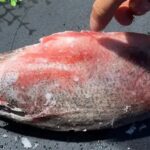How to Store Fish to Maximize Freshness and Longevity, Even After Cooking
The refrigerator is a handy tool for quickly preserving food, but did you know there’s a right way to store fish to ensure maximum freshness and longevity? Whether it’s fresh or cooked, there are specific methods and timing to consider for optimal fish preservation.
1 Understanding Storage Times for Fresh and Cooked Fish
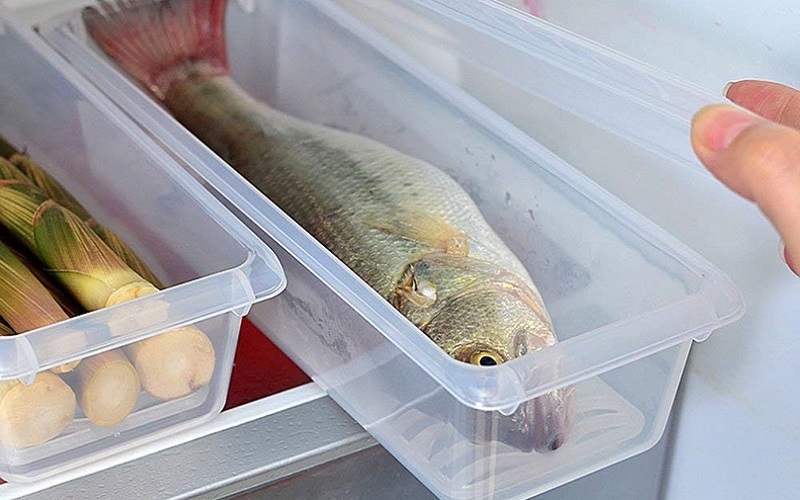
According to the US Food and Drug Administration (FDA), seafood, including fish, shrimp, clams, and squid, should only be stored in the refrigerator for a maximum of 1 to 2 days. To ensure your fish stays fresh and prevent spoilage, it’s crucial to follow these storage guidelines:
Raw fish: Store in the refrigerator for up to 2 days or in the freezer for 2–6 months. This will ensure the fish stays fresh and safe to consume.
Cooked fish: Refrigerate for 3–4 days or freeze for up to 6 months. Cooking extends the shelf life, but proper storage is still essential to maintain quality and freshness.
Note: The ideal temperature for your refrigerator is 2–4°C, and for the freezer, it’s -18 to -20°C. These temperatures ensure the fish stays in its optimal condition.
2 Master the Art of Storing Fresh and Cooked Fish
Storing Fresh Fish
To keep your fresh fish in prime condition, begin by minimizing air exposure, cleaning the internal organs, and ensuring the fish is thoroughly dry. Then, consider these three effective methods before placing the fish in the refrigerator or freezer:
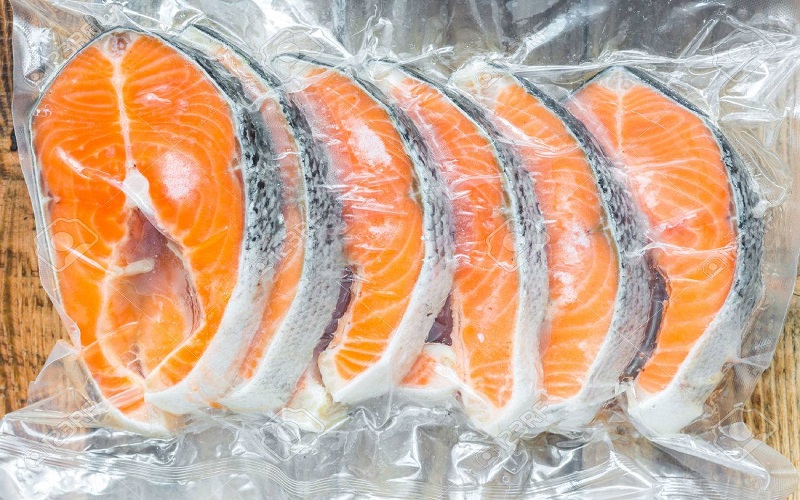
Method 1: Place the cleaned and dried fish in an airtight resealable bag. Before sealing, remove as much air as possible to create a vacuum-like environment. If you have a vacuum sealer, even better! Removing air is crucial as it contains bacteria and mold that can spoil your fish.
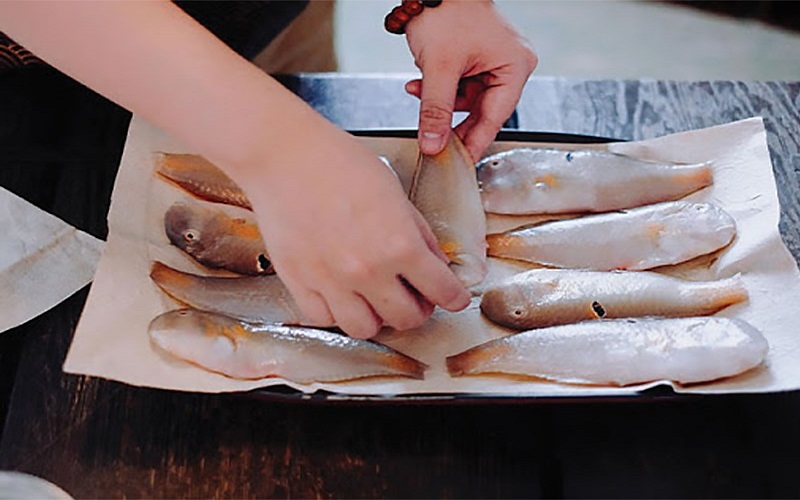
Method 2: Wrap the fish in aluminum foil and then cover it with a layer of parchment paper, specifically designed for freezer storage. This double-layer protection helps maintain the quality of the fish.

Method 3: Place the fish in a tray or bowl, cover it with filtered water, and freeze. This method helps slow down enzyme breakdown, preserving the fish’s freshness and flavor.
Storing Cooked Fish
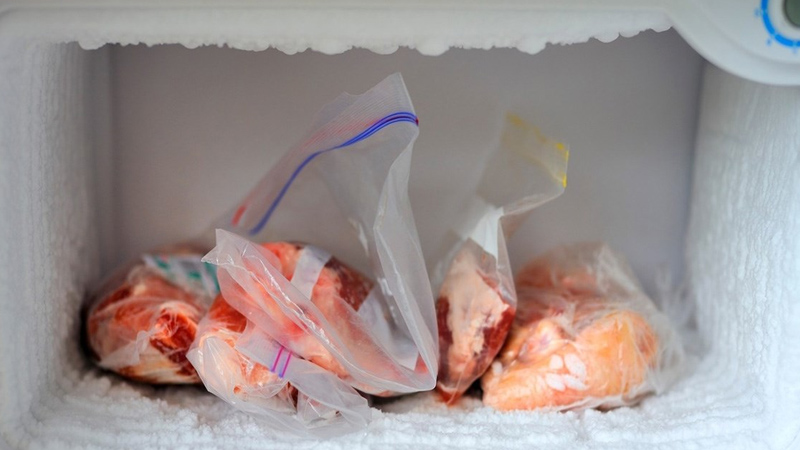
For cooked fish, we recommend storing it at a cool temperature of 0–1°C. Before placing it in the refrigerator or freezer, reheat the fish and allow it to cool down. This process will help extend its shelf life, keeping it fresh for 3–4 days in the fridge and up to 6 months in the freezer.
Important: Thawing Frozen Fish
When thawing frozen fish, always place it in the refrigerator overnight, or if it’s raw, submerge the wrapped fish in cold water. Avoid using a microwave or leaving it at room temperature as this can partially cook the fish and activate bacteria and enzymes, leading to spoilage.
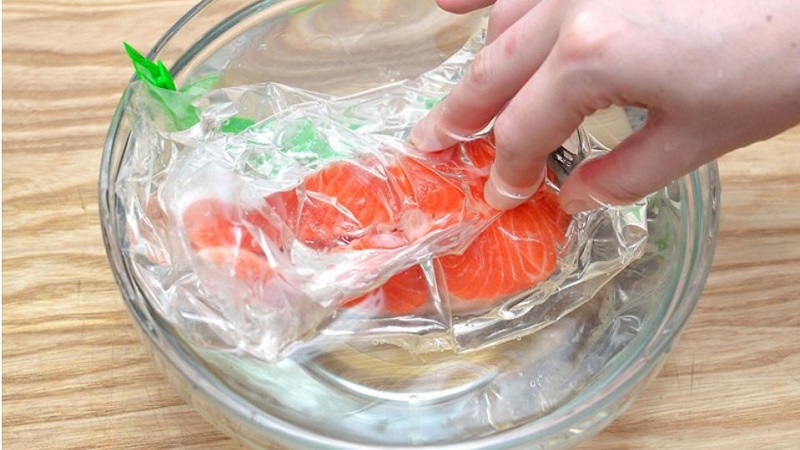
Once the fish is thawed, cook and consume it immediately. To preserve nutrients and prevent bacterial growth, avoid refreezing.
To ensure you’re starting with the freshest fish possible, look for bright, shiny skin, red and moist gills, and firm flesh. If the fish appears gray and dry with dark red gills, it’s not fresh. Always opt for a traceable source, and if farmed, ensure it meets quality standards.
By following these methods and tips, you’ll be able to effectively store fresh and cooked fish, maintaining its quality and flavor. We hope these insights will help you optimize the preservation of this delicate food item and create delightful meals for your family.
Further Reading: How to properly defrost fish to ensure food safety and maintain its texture and flavor.
You may also like:
“Troubleshooting Common Mistakes When Preparing Fish: A Guide to Delicious Results”
“Maximizing Fish Freshness: Tips to Extend the Life of Your Catch or Purchase”
“Odor-Eliminating Hacks for Cleaning Freshwater Fish: Enhancing Taste and Reducing Smell”
“Unlocking the Secrets to Always Having Fresh Mackerel: A Guide to Optimal Taste and Nutrition”
Mistakes That Ruin the Taste and Nutrition of Your Cooked Fish
“Fish are an excellent source of protein and provide a complete amino acid profile, as well as essential minerals that are beneficial to our health. However, improper cooking methods can not only ruin the delicate texture of the fish but also destroy its valuable nutrients. Join us as we explore the best ways to prepare and cook fish to retain its nutritional goodness.”
The Secret to Always Having Fresh Mackerel
“Fish is a lean, nutrient-rich protein source that boasts an impressive nutritional profile. Mackerel, in particular, offers a cost-effective option without compromising on taste and health benefits. Today, we’re sharing our secrets to preparing and cooking mackerel, ensuring it stays fresh and flavorful.”

























